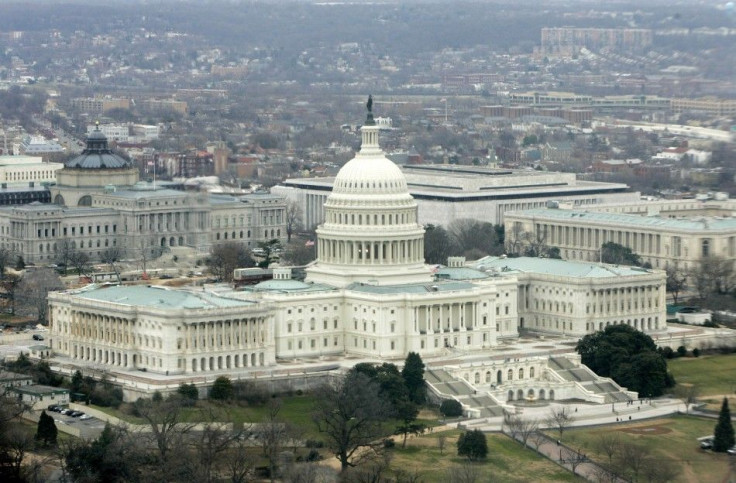CBO Sees $1.28 Trillion Budget Deficit for 2011, Progress from Debt Deal
ANALYSIS

The much-maligned U.S. debt deal is not inconsequential, according to latest budget deficit and economic analysis report from the Congressional Budget Office (CBO) -- it slices next year's deficit to $973 billion from $1.28 trillion this year, and it will also lower interest rates.
What's more, CBO expects the U.S. Government to accumulate a $3.487 trillion deficit over the next 10 years, a huge $3.3 trillion reduction from its previous estimate. The debt forecasts assume the 2001/2003 Bush tax cuts expire in 2012, as scheduled.
However, CBO also said that it expects U.S. economic growth to remain well below the economy's potential with the organization forecasting that U.S. GDP will increase 2.3 percent in 2011 and 2.7 percent in 2012. CBO also sees the unemployment rate remaining above 8 percent through 2013. On interest rates, CBO expects the 10-year U.S. Treasury note to average 4.1 percent from 2013-2016 and 5.3 percent in 2017-2021.
Although economic output began to expand again two years ago, the pace of the recovery has been slow, and the economy remains in a severe slump, CBO said in its latest report. Recent turmoil in financial markets in the United States and overseas threatens to prolong the slump.
In addition, CBO underscored, in so many words, that Congress' budget deficit reduction task has only just begun: the second half involves addressing the Medicare/Medicaid issue, with increased health service from aging Baby Boomers likely to pressure health care costs. in the decade ahead.
Beyond the 10-year projection period, further increases in federal debt relative to the nation's output almost surely lie ahead if certain policies remain in place. The aging of the population and rising costs for health care will push federal spending up considerably as a percentage of GDP. If that higher level of spending is coupled with revenues that are held close to their average share of GDP for the past 40 years (rather than being allowed to increase, as under current law), the resulting deficits will cause federal debt to skyrocket, CBO said. To prevent debt from becoming unsupportable, policymakers will have to substantially restrain the growth of spending, raise revenues significantly above their historical share of GDP, or pursue some combination of those two approaches.
Fiscal Policy/Economic Analysis: A rich report by the CBO, and the full report can be read by clicking here.
In a summary, CBO says the debt deal represents a good first step toward debt reduction, but the aging populace stemming from a retiring Baby Boom generation represents the 800-pound gorilla in the room. Simply, Congress must find ways to contain Medicare/Medicaid health care costs -- a requirement if the U.S. is going to balance its budget.
Also, CBO notes what every policy maker knows on Capitol Hill: that if the 2001/2003 Bush tax cuts continue, rather than expire at the end of 2012 as scheduled, Congress would have to really restrain spending, and access other revenue sources/tax increases, or pursue a combination, to prevent the debt from becoming unsupportable.
© Copyright IBTimes 2025. All rights reserved.





















